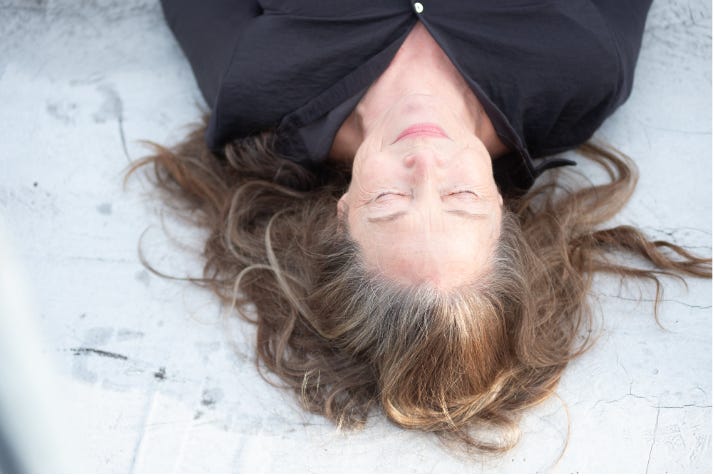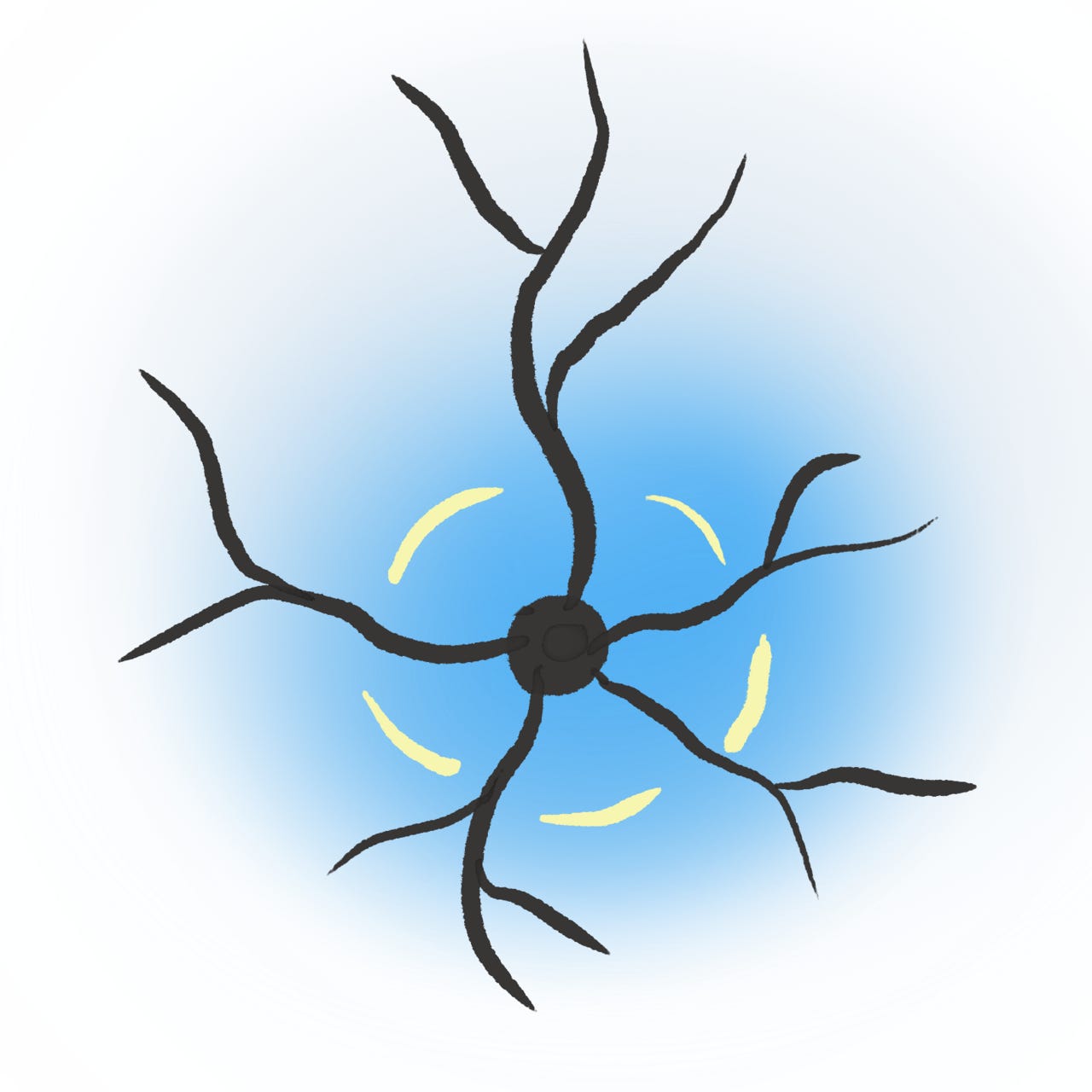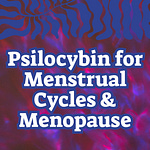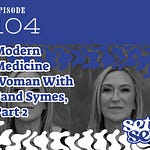Many people are now turning to mushrooms beyond the kitchen. Is it The Last of Us? To find magic? Create solutions that are kinder and gentler to Mother Earth? SetSet’s Shroom Strain Reviews? Answer yes to any of these questions and you’ll enjoy the Live Recording of our first virtual Psychedelic Salon, featuring Eugenia Bone, celebrated food and nature writer, and Renee Davis, mycologist, environmental engineer, and former Perfecti Fungi R&D, for a candid, science-rooted discussion about Eugenia’s new book on psilocybin mushrooms Have a Good Trip.
In a conversation moderated by me, we explore how psilocybin mushrooms sit at the crossroads of personal curiosity, ecological science, and an emerging industry still battling misinformation. From the surprising realities of “bad trips,” to what fungi can teach us about systems thinking, and why the DEA leaves mushroom churches alone. I even learned there’s no wrong way to say “fungi.
Lots of personal narratives and practical microdosing tips with journalistic rigor. It’s a must-listen for anyone seeking clarity in the swirl of psychedelic headlines. Thanks for tuning in! Please LIKE this post and the episode wherever you listen, so others are more likely to learn about Eugenia and Renee’s work.
Reserve your ticket here for our next virtual Salon on August 4th with Charley Wininger, a psychotherapist specializing in relationships and communication, and his partner Shelley, who introduced MDMA to Charley, inspiring his book Listening to Ecstasy: The Transformative Power of MDMA. Expect a broader conversation about Psychedelics and Seniors, including cannabis for sex as women age. I AM SO EXCITED ABOUT THIS SALON!
Take care,
April
🔵 Key Takeaways
Psychedelic mushrooms amplify who you already are—not necessarily transform you into someone new.
The psilocybin world sits at the collision of underground community wisdom and formal scientific research, creating tensions—and opportunities—for the emerging industry.
Bad trips and derealization are more common than the psychedelic community often admits, highlighting the importance of nuanced conversation and integration support.
Fungal ecology offers a blueprint for understanding complex systems—and inspires applications from soil health to mental health.
Psilocybin mushrooms remain largely illegal, but surprising legal gray zones exist, like the Netherlands’ “magic truffles” loophole and the quiet tolerance for religious use in U.S. psychedelic churches.
Subscribe to get SetSet with psychedelics!
🔵 Timestamps
[[00:00] Welcome to the first virtual psychedelic Salon and intros to Eugenia Bone and Renee Davis
[03:00] Eugenia shares why she finally wrote Have a Good Trip—and how much has changed since Michael Pollan’s book
[07:00] Renee’s path from ecological research to psilocybin, and why fungi captivate interdisciplinary thinkers
[10:00] How the psychedelic world once excluded talk of magic mushrooms—and how the community is evolving
[13:00] Psychedelics and industry: the challenges of regulation, clinical trials, and community tensions
[17:00] Magic truffles in the Netherlands and why legal loopholes exist
[18:00] Whole mushroom vs. synthetic psilocybin: why entourage effects might matter
[22:00] Fungi as a gateway into systems thinking, ecology, and non-binary perspectives
[28:00] Can psilocybin change society—or just individuals? Exploring psychedelic idealism vs. reality
[32:00] Most people use mushrooms for personal joy—not purely therapeutic reasons
[35:00] The rise of microdosing—and the gaps in knowledge and safety
[39:00] The complexity of regulating psychedelic facilitators, churches, and industry claims
[45:00] Renee and Eugenia’s favorite mutualisms in fungal ecology—and how these lessons apply to human systems
[48:00] Audience Q&A: bad trips, derealization, and the ethics of psychedelic education
[55:00] Upcoming talks and projects for Eugenia and Renee
🔵 Featured Guest
Eugenia Bone: Author, Have a Good Trip | eugeniabone.com | eugeniagbone
eugeniabone.substack.com
Renee Davis: Mycologist and environmental engineer | @reneethemycologist reneeadeledavis.substack.com
🔵 Additional Resources
🎙️SetSet Podcast: Ep. 104 “Microdosing for Women”
🎙️SetSet Podcast: Ep. 80 “Psilocybin Mushroom Dosing 101”
Curious if psilocybin could change how you relate to your own mind—or just the forest outside your door? Have you wrestled with skepticism, industry hype, or the fear of a “bad trip”? 👇 Let’s talk about it in the comments after the transcript below.
🔵 Transcript
April Pride: Welcome to everyone who’s joining us. I’m April, and this is our first virtual psychedelic salon. We’ll wait a couple more minutes for folks to join, but I’m already so excited to talk about this book today—it’s been top of mind for me.
Okay, I’d like to get started. For those of you new to this space, our psychedelic salon was born out of our in-person salon in Seattle that started in 2023. We began hosting events at Town Hall Seattle, and it became clear how much hunger there is for conversations around psychedelic medicine—and for community among people who are curious.
So thank you for being here, wherever you are. Today’s guests are Eugenia Bone, who’s in New York, and Renee Davis, who happens to be a Seattleite but is spending time on the East Coast right now.
We’re here to talk about Have a Good Trip, the newest book from Eugenia Bone, who many of you know as a food and nature writer, author of several books, and an instructor at the New York Botanical Garden, where she teaches about mycophagy and psychedelic mushrooms. She’s even been featured in Fantastic Fungi.
And we’re joined by Renee Davis—mycologist, environmental engineer, and former R&D director at Fungi Perfecti, who’s dedicated to inspiring people about the promise of fungi for environmental innovation.
I’m technically the moderator, but really I’m here to facilitate the conversation between these two brilliant women. So let’s get into it.
Eugenia, why this book—and why now?
Eugenia Bone: Thanks for having me, April. It’s great to see everyone.
So, this book has been a long time coming. Years ago, I wrote Mycophilia and an op-ed in the New York Times saying, basically, “Let’s reschedule psilocybin—it has so much potential for therapeutic treatment.” I got a great response. So I thought my next book might be about psychedelic mushrooms and new science emerging from academia.
But then…Michael Pollan. [laughs] My agent called and said, “Guess who’s writing a book on psychedelic drugs?” And I didn’t want to go up against him in the market. So I pivoted and wrote a book about bacteria instead.
Years later, Macmillan approached me to write something new, and I realized so much had changed since Michael Pollan’s book. There was new research, growing community interest, and the beginnings of an industry.
So this was my chance to write the book I’d always wanted to—a resource to help people navigate this world with good information and critical thinking.
April Pride: Renee, how about you? How did ecology and psilocybin collide for you?
Renee Davis: Yeah. My journey into ecology started about fifteen years ago, working in research tied to tribal communities and environmental policy. I saw how plants and mushrooms connected people to the natural world.
Mycology is a paradise for interdisciplinary explorers like me. There’s always something new—biology, chemistry, environmental science, cultural history…so many threads.
And many people get turned onto mycology through psilocybin. They have an experience and suddenly wonder: What is this kingdom of fungi?
For me, psilocybin came in later. I was working on R&D at Fungi Perfecti, developing projects around fungi and biomimicry. During the pandemic, we were exploring intellectual property around specialized combinations with psilocybin. It was fascinating to think about how psychedelics might help humans handle complexity and foster a sense of connection.
Eugenia Bone: Yeah—my Venn diagram overlaps with Renee’s in the world of mycology. For me, it started with foraging.
In the early days, the mycology world was divided: you had professional mycologists, passionate amateurs—often foragers like me—and then the “trippers.” Psychedelic mushrooms were the black sheep of the ecology world.
If you went to a mushroom foray or conference back then, no one would even mention magic mushrooms. It could tank your career. But once Johns Hopkins and other institutions started publishing legitimate research, that began to change.
April Pride: That’s wild to think about now. A great deal has changed in just a few years.
Let’s talk about the industry. Eugenia, what’s working—and what’s not—in how the psychedelic industry is developing?
Eugenia Bone: Oh, there’s a lot to unpack.
One issue: if you’re trying to move a psychedelic drug through the FDA regulatory system, it doesn’t help to have the community trash-talking the FDA, the very agency trying to secure safety and efficacy.
Legalization efforts have made progress—Colorado, Oregon, and certain cities have decriminalized psychedelics. But the regulatory pathway to medicalization is a separate beast.
And then there’s this whole phenomenon of psychedelic churches, which is fascinating. Under the Religious Freedom Restoration Act, some churches use psilocybin as a sacrament. As long as they’re not causing a nuisance—no gangs, no violence—the DEA mostly leaves them alone.
Renee Davis: Totally. There’s such a mismatch between traditional regulatory frameworks and how fungi—and psychedelic use—operate in real life.
Even in the Netherlands, magic truffles are legal simply because the government forgot to ban them. The truffle is actually a sclerotium—the resting phase of the mycelium. It contains enough psilocybin to get people high, but because it’s technically not the fruiting body, it slipped through a loophole.
Eugenia Bone: Right! That’s why when people go to Amsterdam and want mushrooms, they get truffles. It’s a fascinating example of regulatory gaps.
Another key question: Is there a difference between consuming whole mushrooms versus synthetic psilocybin? Nobody knows for sure. The whole mushroom contains other compounds that might influence the trip—what we call the entourage effect.
But synthetics make sense for microdosing or scientific studies, where precision is critical.
April Pride: Speaking of microdosing—Eugenia, you dug into this topic in your book. Any big insights?
Eugenia Bone: Definitely.
First, there’s so much confusion about what microdosing even means. People talk about microdosing Lion’s Mane mushrooms—but Lion’s Mane isn’t psychoactive. You can eat a big plate of it for dinner and you’re not tripping. Microdosing only makes sense with substances that cause intoxication, where you want sub-perceptual effects.
Second, microdosing is very individual. Some people feel time dilation even at tiny doses, while others feel nothing. It’s crucial to measure doses carefully and understand the variability in mushroom potency.
And third, there’s a dark side. Many people don’t realize that derealization—a sense that the world feels unreal—can happen, even with small doses. I’ve had people come up to me after talks, saying they’ve felt disconnected for months after a trip. That’s not just a “challenging trip.” That’s a serious outcome.
Renee Davis: Absolutely. And in the psychedelic community, there’s sometimes denial about bad trips. People say, “There’s no such thing as a bad trip, just challenging trips.” But that’s not true for everyone.
Eugenia Bone: Exactly. The idea that psychedelics are a universal cure-all is a fantasy. They amplify what’s already there. If you’re an asshole going in, you might come out a bigger asshole. [laughs]
April Pride: Oh my God. Thank you for saying that. [laughs]
Eugenia Bone: Seriously, though, this drug can be transformative, but it doesn’t inherently make you a better person. Integration and support are crucial.
Renee Davis: And that’s where community comes in. Integration circles, peer groups—they help people process their experiences. There’s a fascinating history of communities like the Cluster Busters, people who discovered psilocybin helped their cluster headaches and built an entire grassroots research movement.
Eugenia Bone: That’s one of my favorite examples. People sharing personal anecdotes online eventually led researchers to conduct clinical trials. It’s science working from the ground up.
April Pride: Let’s end on a big question. Do you both think psilocybin can improve our relationship with nature—or change society?
Eugenia Bone: I think psilocybin can help individuals feel more connected to nature. People often see fractals in leaves or clouds during trips and feel like they’re glimpsing an underlying order to the universe.
But in terms of large-scale social change? I’m skeptical. Psychedelics amplify existing tendencies; they don’t necessarily create new values or ethics.
Renee Davis: I’d agree. But learning about fungi—even separate from tripping—is profoundly good for the brain. It forces you into systems thinking, complexity, nuance. That alone could reshape how we engage with the world.
April Pride: That’s beautifully said.
Eugenia Bone: And one last thing—follow your curiosity. Curiosity is destiny. If something fascinates you, let yourself go down the rabbit hole. For me, it started with cooking mushrooms, then foraging, and now ecology. It’s all connected.
Renee Davis: Same. Mycology keeps giving me new ways to think about the world—and new ways to connect with people.
April Pride: Thank you both. This has been such a rich conversation. For everyone listening, remember: Eugenia’s book Have a Good Trip is out now, and Renee’s working on fungal applications for soil health through Bio Bead. And we’ll see you at our next salon!



















Share this post